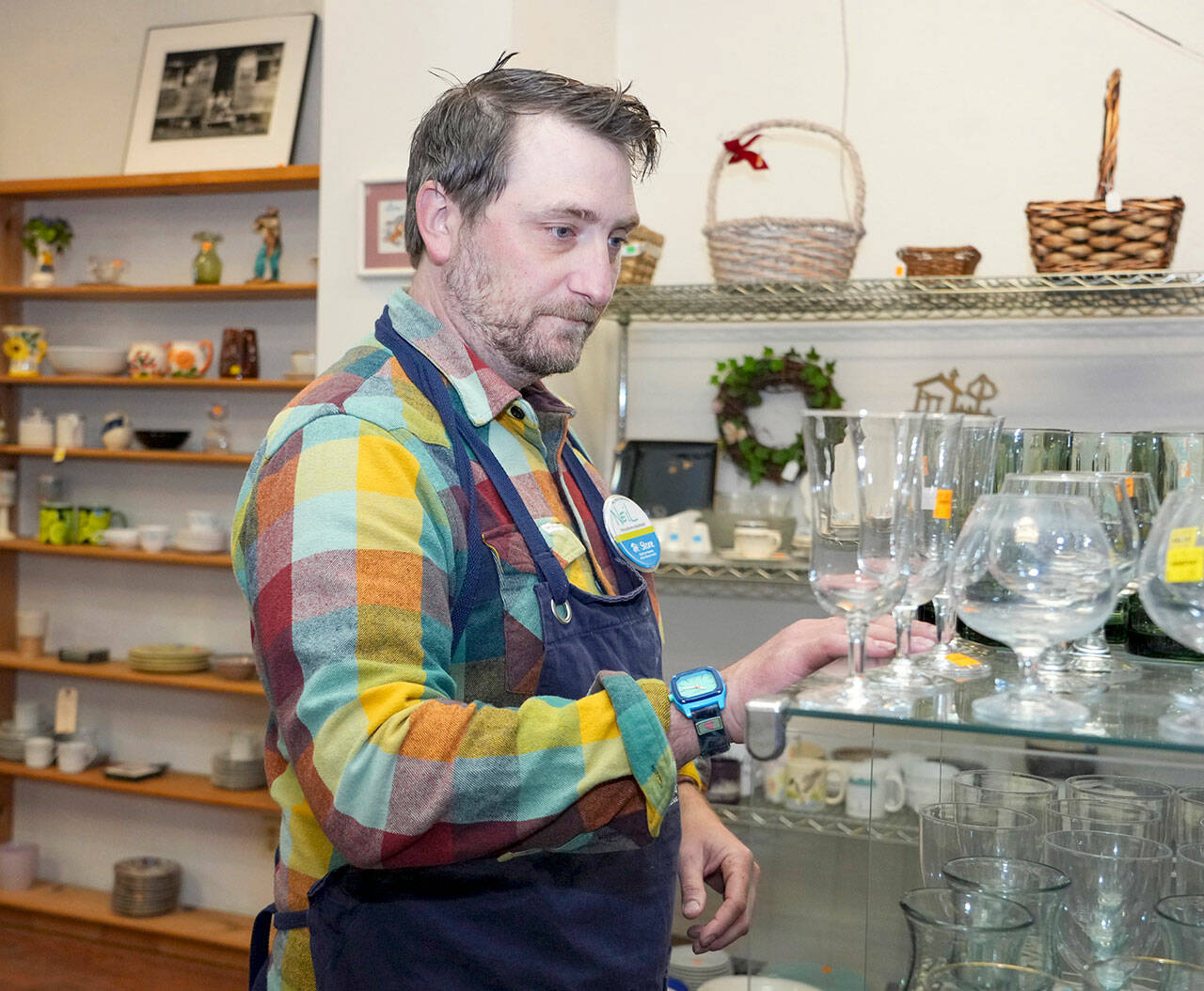PORT TOWNSEND — Housing, specifically the lack of it, has become a top priority across the nation, and in Jefferson County the local chapter of Habitat for Humanity has been working overtime to build affordable homes.
“Habitat for Humanity has really looked and listened to this housing crisis and found such amazing support in the community that said, ‘Do more,’” said Jamie Maciejewski, executive director of Habitat for Humanity of East Jefferson County.
Traditionally, the local HFH chapter has built about five homes in a 12-month span, Maciejewski said, but currently, there are more than 10 units under construction and output is likely to stay at that level for at least a couple of years.
Habitat has been working on a larger housing project on a 17-acre plot in Port Hadlock but that effort won’t be completed for several years, Maciejewski said. In contrast, there are currently eight units under construction in Port Townsend that residents are expected to move into later this year.
One of those residents is Neil Howe, who’s lived in the city off and on for several years and permanently since 2018. He’s set to move into a home on Mason Street that is currently under construction, but finding a home for himself and his 10-year-old son hasn’t been easy.
“There’s very few places to live here in town,” Howe said. “I found a place that really wasn’t ideal, but it was the only thing I could find.”
When he applied to Habitat, he was living in a unit above a garage, which he said had fume issues, a leaky roof and no handrails on the stairs leading to it.
Howe works as a manager at the Rose City Theater and is a garden manager at Salish Coast Elementary School. He also has a sports podcast.
“I have to wear very many hats to stay afloat here in Port Townsend,” he said.
According to the University of Washington’s Center for Real Estate Research, the median price of a home in Jefferson County in 2022 was $606,800, slightly less than the statewide average of $647,900.
But those prices have risen rapidly.
In 2015, the median home price in the county was $276,600 and $455,900 in 2020.
Habitat for Humanity of East Jefferson County has recently adopted a new model that hopes to keep home prices permanently affordable, at least for the next 99 years. It’s a model similar to what’s known as a Community Land Trust, where ownership of the land and the homes on the land are separated.
There are some differences between Habitat’s model and a Community Land Trust, Maciejewski said, but it’s the same kind of legal mechanism.
“The house price is set below what the market rate would be for the house and it’s substantially lower than what the market rate price would be,” Maciejewski said. “So that’s what people agree to, in exchange for that they own the house and they lease the land in a 99-year, inheritable, renewable situation.”
Residents like Howe will own the homes they live in and can sell them in the future, but Habitat limits the appreciation on the home to 1.5 percent annually.
“Let’s say they bought their house for $200,000 and they get 1.5 percent simple interest appreciation each year, so if they sell it in 10 years, they’ve gotten 1.5 percent interest times 10 or 15 percent interest appreciation,” Maciejewski said. “So that’s $30,000, so the new price that they can sell it for is $230,000, and that sets the price even if there’s million-dollar homes next to them.”
Applicants are typically able to secure low-interest loans mainly through a U.S. Department of Agriculture program, Maciejewski said, but sometimes through nonprofit organizations that offer similar products.
Howe said working with Habitat has been a great experience. The program was clearly explained and Howe attends monthly homeowner classes to prepare him for owning property.
“It seemed very bleak attempting to own a home here,” Howe said. “Especially after COVID and rents skyrocketed and prices of homes went up.”
Howe said he’s extremely grateful to have been accepted into Habitat’s program and that he knows several other people who also applied but were unable to qualify.
In addition to meeting the requirements of the program, successful applicants have to contribute what’s called sweat equity, or working for the local Habitat chapter. Traditionally, that means doing construction, typically on the home an applicant will move into, but Habitat also allows people to work at their thrift stores.
So far, Howe said his sweat equity has been on other people’s homes, but as the construction season picks up, he hopes to start working on his own home and be moved in early this summer.
The units under construction on Mason Street are not single-family homes but duplexes, or what Maciejewski called paired homes. It’s a smaller footprint than he’s used to, but Howe said he’s looking forward to having his own place.
Maciejewski said Habitat for Humanity of East Jefferson County has other properties it owns where it’s looking to build additional housing, but all of the homes will use the permanently affordable land trust model.
“It ensures that someone who is in a similar kind of line of work, making a similar kind of wage. Of course, there’s cost of living increase, appreciation of wages, but it’s someone who has been a school bus driver can still buy it in 10 years,” Maciejewski said.
“And the seller gets that appreciation plus they get what they’ve paid off on their mortgage and they have a good nest egg for the next step in their lives.”
________
Reporter Peter Segall can be reached at peter.segall@peninsuladailynews.com.

